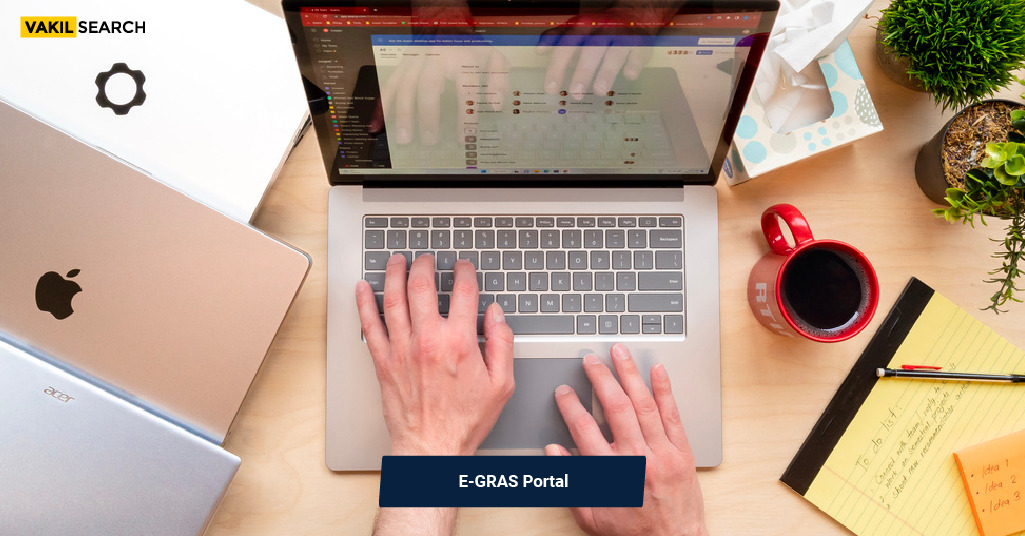The E-GRAS (Online Government Receipts Accounting System) is an e-governance initiative introduced by several Indian states to streamline and modernize their tax and non-tax revenue collection processes
E-GRAS Portal Overview
The E-GRAS (Online Government Receipts Accounting System) is an e-governance initiative introduced by several Indian states to streamline and modernize their tax and non-tax revenue collection processes. It’s part of the Integrated Financial Management System (IFMS).
Purpose
- Facilitate online and offline collection of tax and non-tax revenue for the government.
- Improve transparency and accountability in revenue collection.
- Enhance taxpayer convenience by offering online services like challan generation, payment processing, and receipt download.
Features
- eChallan generation: Citizens can generate electronic challans (payment slips) for various taxes and fees online.
- Online payment: Payments can be made through various options like net banking, credit/debit cards, and UPI.
- Payment tracking: Track the status of your payments and download receipts.
- Department search: Find out which departments accept payments through the E-GRAS portal.
- Guest access: Non-registered users can make payments using a limited guest account.
Benefits of E-GRAS
E-GRAS offers numerous benefits for both citizens and the government. Here are some key advantages:
For Citizens
- Convenience: Pay taxes and fees online anytime and anywhere, eliminating the need to visit government offices and stand in queues.
- Transparency: View details of taxes, fees, and payment history easily.
- Security: Secure online payment options ensure the safety of your financial information.
- Accuracy: Reduces errors and delays associated with manual payments.
- Faster processing: Get instant confirmation of payments and download receipts immediately.
- Reduced costs: Saves time and money spent on travel and paperwork.
For Government
- Efficiency: Streamlines the tax and fee collection process, saving time and resources.
- Increased revenue collection: Reduces tax evasion and improves compliance.
- Improved data management: Provides accurate and centralized data on revenue collection.
- Reduced corruption: Promotes transparency and accountability in government finances.
- Better financial reporting: Enables accurate and timely financial reporting.
State-Specific Portals
Each state implementing E-GRAS has its own portal with specific features and functionalities. Here are some examples:
- Rajasthan: https://egras.rajasthan.gov.in/
- Haryana: https://egrashry.nic.in/getgrnstatus.aspx
- Assam: https://assamegras.gov.in/
Who Can Avail the E-GRAS Service?
E-GRAS is generally available to any individual or entity that needs to pay taxes or fees to the government in the specific state where the portal is implemented. This includes:
- Individuals: Citizens paying taxes like income tax, property tax, vehicle registration fees, etc.
- Businesses: Companies paying taxes like GST, VAT, professional tax, etc.
- Other Entities: Societies, trusts, educational institutions, government departments, etc.
- Non-residents: Individuals or entities residing outside the state who need to make payments to the government within that state.
Online Payment Procedure
The online payment procedure through E-GRAS typically involves the following steps:
- Visit the E-GRAS portal for your state.
- Select the department or service you want to pay for.
- Generate an eChallan (electronic challan) by providing the necessary details.
- Choose your preferred online payment method (net banking, credit/debit card, UPI).
- Enter your payment details and make the payment.
- Download the payment receipt for your records.
Conclusion
E-GRAS is a valuable e-governance initiative that simplifies tax and fee payments for citizens while improving efficiency and transparency for the government. By leveraging online technology, E-GRAS offers convenience, security, and cost-effectiveness for both parties. If you need to pay taxes or fees in a state that uses E-GRAS, I encourage you to take advantage of this secure and convenient platform.
Frequently Asked Questions
How do I make a payment on the e-GRAS Portal?
The exact steps for making a payment on the e-GRAS Portal may vary depending on your state, but here's a general overview: Visit the e-GRAS portal for your state. Select the department or service you want to pay for. Generate an eChallan (electronic challan) by providing the necessary details. This usually involves filling out information like tax type, amount, taxpayer details, etc. Choose your preferred online payment method: net banking, credit/debit card, or UPI. Enter your payment details and make the payment. Ensure you follow the instructions from your chosen payment provider. Download the payment receipt for your records. This serves as proof of your payment.
What if I encounter any issues while using the e-GRAS Portal?
Several resources are available to help you if you encounter difficulties on the e-GRAS Portal: Help desk: Most state portals have a dedicated help desk section with frequently asked questions, contact information, and user manuals. Contact form: You can fill out a contact form on the portal to receive assistance from the department responsible for e-GRAS. Phone support: Some states offer phone support for troubleshooting e-GRAS issues. Contact details are usually available on the portal or the department's website.
What are the security measures in place on the e-GRAS Portal?
E-GRAS portals implement various security measures to protect your information and ensure secure transactions: Secure socket layer (SSL) encryption: Encrypts your data during transmission, protecting it from unauthorized access. Payment gateway security: Partnered with secure payment gateways that adhere to industry-standard security protocols. User authentication: Requires user login with credentials for accessing personal information and transactions. Regular security audits: Periodically undergo security audits to identify and address potential vulnerabilities.
Who can use the e-GRAS Portal?
Generally, any individual or entity that needs to pay taxes or fees to the government in the specific state where the e-GRAS portal is implemented can use it. This includes: Individuals: Citizens paying taxes like income tax, property tax, vehicle registration fees, etc. Businesses: Companies paying taxes like GST, VAT, professional tax, etc. Other Entities: Societies, trusts, educational institutions, government departments, etc. Non-residents: Individuals or entities residing outside the state who need to make payments to the government within that state.




